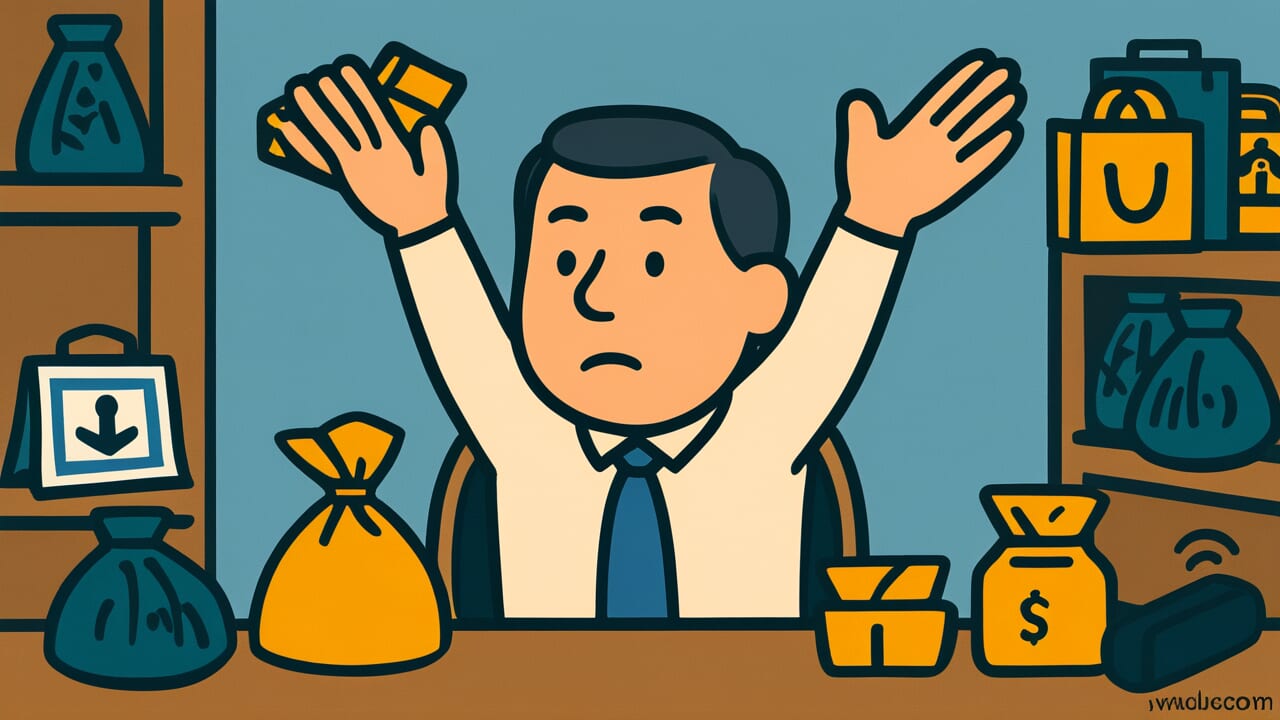How to Read “When wealth is great, it is difficult to protect oneself”
takara ōkereba mi o mamoru ni madoshi
Meaning of “When wealth is great, it is difficult to protect oneself”
This proverb means that when you have a lot of wealth, protecting yourself becomes difficult. At first, this might sound contradictory. But it contains a deep truth.
When your wealth increases, you attract the attention of people who want it. You become an easy target for thieves and scammers. Relatives and acquaintances may also make more financial demands on you.
The effort needed to manage and protect your wealth becomes enormous. You worry about taxes, investment decisions, and inheritance planning. The list of things to think about piles up endlessly.
Wealth also complicates your relationships. You may become suspicious, wondering if someone is a true friend or just after your money.
In this way, increasing wealth can actually threaten your physical and mental safety and peace. This proverb points out this situation clearly.
It teaches us to understand the responsibility and burden of having wealth. It reminds us of the importance of living within our means.
Origin and Etymology
There doesn’t seem to be a clear record of where this proverb came from. However, we can make interesting observations from how the words are structured.
Let’s focus on the word “madoshi.” This is an adjective form of the classical Japanese word “madou,” which means “to be confused,” “to be troubled,” or “to struggle with something.”
You can still see traces of this word in modern Japanese expressions that suggest being complicated or troublesome.
The background of this proverb likely relates to the relationship between wealth and safety in Japanese history. Wealthy families faced higher risks of being targeted by bandits.
To protect their wealth, they had to build storehouses, hire guards, and stay constantly alert. The risks of inheritance disputes among relatives and attracting unwanted attention from powerful people also increased.
In other words, the more wealth you accumulate, the more complex the effort and worry needed to protect it becomes. This makes it harder to keep yourself safe.
This proverb expresses an ironic truth about human society. It shows wisdom that Japanese people recognized long ago: material wealth and spiritual peace don’t necessarily go hand in hand.
Usage Examples
- That company president is living proof that when wealth is great, it is difficult to protect oneself—he’s so busy with security and tax planning that he has no time to rest
- Winning the lottery would be exciting, but when wealth is great, it is difficult to protect oneself, so it might actually cause more trouble than it’s worth
Universal Wisdom
This proverb sharply addresses an eternal dilemma: human desire versus safety. We instinctively want to “have more.” This is partly a survival instinct.
But our ancestors realized something important. Owning things also means carrying the fear of losing them.
When you have little wealth, protecting it is relatively simple. But as your wealth grows, what you must protect increases. The threats you must watch for also multiply.
Thieves, scammers, dishonest people, and sometimes even family members can become threats. Wealth has the power to change people’s hearts.
The proverb offers an even deeper insight: the “paradox of ownership.” We think we own things, but perhaps things actually own us. This is the question it raises.
You spend most of your life protecting your wealth. You worry constantly. You become suspicious of relationships. Can this really be called a rich life?
This proverb has been passed down through generations because it contains a timeless truth. Material wealth and spiritual peace don’t necessarily align.
It continues to ask us: What is true security? What is real wealth?
When AI Hears This
As wealth increases, the amount of information processing needed to protect it explodes. For example, one million yen can simply go in a safe.
But with 100 million yen, you must manage bank accounts, monitor investments, handle tax processing, and plan for inheritance. The information you must manage multiplies dozens of times.
This is exactly like the increase of entropy in physics. Entropy represents “disorder,” and according to the laws of the universe, it always increases.
Just as an organized room becomes messy if left alone, maintaining order requires constant energy input. Wealth works the same way.
If your assets increase tenfold, the complexity of management doesn’t just increase tenfold. Considering the interactions between assets, it could increase a hundredfold.
Real estate, stocks, bonds—each has its own tax system and regulations that intertwine. The number of combinations increases factorially.
What’s more interesting is that this management cost consumes the wealth itself. Lawyer fees, accountant payments, security measures—these offset the profits generated by the wealth.
It’s the same structure as “available energy” continuously decreasing in physics. As wealth increases beyond human processing capacity, the system moves toward an unmanageable high-entropy state.
This proverb intuitively grasped the fact that economic activity cannot escape the laws of thermodynamics.
Lessons for Today
This proverb teaches modern people the value of “knowing what is enough.” You might see others’ wealthy lives on social media and feel envious. You might feel anxious that you need to earn more.
But what’s truly important is living within a range you can comfortably manage, isn’t it?
In modern society, not just wealth but also information, data, and relationships have become “assets to protect.” Social media accounts, personal information, online reputation—there’s much more to manage than in the past.
If you try to protect everything perfectly, you’ll exhaust yourself.
That’s why having the ability to identify what truly matters is important. There’s also the option to not own more than necessary and live simply.
This isn’t choosing poverty—it’s choosing peace of mind. A life where you can sleep soundly, days surrounded by people you trust—that might be true wealth.
When you have fewer things to protect, you have more room to enjoy life.



Comments